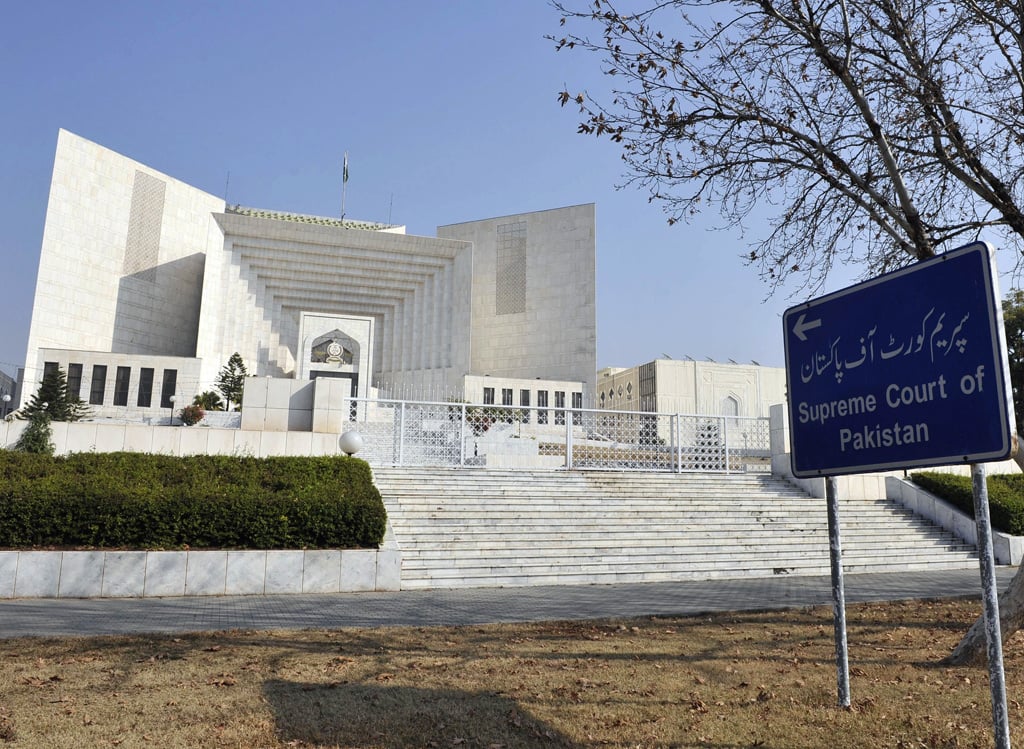
For the first time, the Supreme Court has offered to provide adjudication to resolve the ongoing political impasse with the consent of both the protesting political parties.
Resuming the hearing of different petitions submitted by superior bars against extra-constitutional steps in the present political scenario, the four-judge bench of the apex court, asked the counsels for PTI and PAT to suggest what the court could do to end the standoff. The court has also asked them to consult their clients whether they are agreed to the court’s adjudication.
Terming the constitution a principal document of the nation’s existence, the bench, headed by Chief Justice Nasirul Mulk, said, “Once a fundamental right is violated then it is the duty of the court to act as custodian.”
The court’s offer came in view of PTI’s counsel Hamid Khan’s statement, wherein he requested the top court on August 27 to exercise its jurisdiction of suo motu for the resolution of the protesters’ concerns. At that time, the court had asked him to file a petition.
The chief justice, however, clarified that the court is not offering the role of mediator or arbitrator and the Supreme Court will act as the court of law and will give rulings on whatever is presented before it.
He also referred to Hamid Khan’s plea and said if he had suggestions about how the court could intervene, he should appear before court today (Tuesday).
At the onset of the hearing, Attorney General of Pakistan (AGP) Salman Aslam Butt told the bench about the ongoing political unrest. He stated that both the political parties have violated the government’s No-Objection Certificate (NoC) despite assurances of not crossing the boundary lines of the Red Zone. “They broke the gate of the Parliament House and attempted to break the gate of the Prime Minister’s House.”
The AGP has also requested the court to invoke Article 190 of the Constitution, under which all executive and judicial authorities in Pakistan are bound to aid the Supreme Court.
Meanwhile, Justice Mian Saqib Nisar observed that the Constitution is under threat during the current political standoff. “Whatever is happening, it is against the Constitution.”
He also made it clear that the Constitution gives the Supreme Court the mandate of a ‘neutral empire’.
Justice Jawwad S Khawaja also raised a question, asking how the ongoing protests are different from an insurgency. He also asked PAT and PTI whether they will uphold the Constitution or not.
On the protests taking a violent turn, Justice Anwar Zaheer Jamali has also asked the AG that how many FIRs have been registered against the protesters, who have violated the laws. He also lamented that protesters had attacked the security van of Justice Saqib Nisar on Sunday.
Meanwhile, the bench, refusing to pass a restraining order against protesters, decided to examine the speeches of both PTI and PAT chiefs today (Tuesday).
CJP summons all SC judges
As the political unrest threatens to escalate, Chief Justice of Pakistan Nasirul Mulk summoned all the Supreme Court judges in Islamabad.
Even though summer vacation end on September 8, the CJP has called all SC judges to the capital, according to the SC’s official statement. Currently, 16 judges are working in the apex court. Six benches will sit in the Islamabad registry to hear cases from September 3 (Wednesday) and a new roster has been issued accordingly.
Published in The Express Tribune, September 2nd, 2014.
COMMENTS (1)
Comments are moderated and generally will be posted if they are on-topic and not abusive.
For more information, please see our Comments FAQ












































Poor judges disturbed from their slumber by the noisy and ignorant protestors. But thankfully the elite class of judges will finally put them in their place. Disagree with Qadri n Ik all you want, one cannot deny that the governing class is dangerously out of touch with the masses